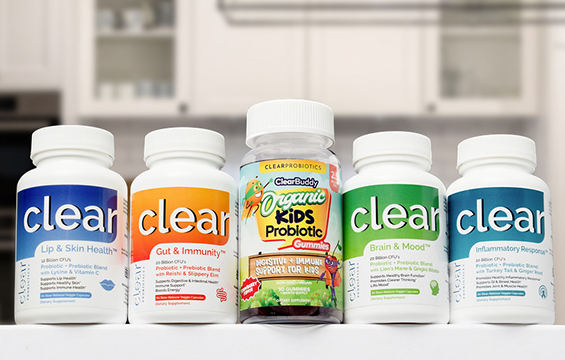Table of Contents
ToggleDive into the fascinating world of refrigerated probiotics with us!
As we journey through this comprehensive guide, you’ll gain insights into how these chilled products enhance gut health and overall well-being.
From their profound benefits to the top picks in the market, get ready to enrich your daily routine with the best-refrigerated probiotics out there.
Key Takeaways:
- Proper storage is essential for maintaining the effectiveness and potency of refrigerated probiotics.
- Some strains of probiotics require refrigeration to extend their shelf life, while others are shelf-stable.
- Probiotics can be found in fermented foods like yogurt, miso, and sauerkraut, as well as in dietary supplements.
- Probiotics have been studied for their potential benefits in conditions such as atopic dermatitis, diarrhea, inflammatory bowel disease, and hypercholesterolemia.
- The effects of probiotics can vary depending on the specific strains and doses used.
Proper Storage and Handling of Probiotics
To fully benefit from refrigerated probiotics, it is crucial to understand the significance of proper storage and handling methods.
Probiotics are live bacteria that can provide numerous health benefits, but their effectiveness can be compromised if not stored correctly.
While some strains of probiotics are shelf-stable and can be stored at room temperature, others, especially those found in refrigerated foods like yogurt and kefir, require refrigeration to extend their shelf life.
Refrigeration helps to maintain the potency and viability of live cultures, ensuring that the probiotics remain effective until the expiration date.
When purchasing probiotic supplements, it is essential to check the label for specific storage instructions.
Some probiotics may need to be refrigerated, while others may be stable at room temperature.
Following the recommended storage conditions will help to preserve the integrity of the probiotic strains, maximizing their health benefits.
It is necessary to avoid exposing probiotics to excessive heat or light, as these factors can degrade the live cultures.
Keeping probiotics in their original packaging and storing them in a cool, dry place can help maintain their quality and potency.
| Storage Tips for Refrigerated Probiotics: |
|---|
| Avoid exposure to excessive heat or light. |
| Refrigerate probiotics that require cold storage. |
| Check the label for specific storage instructions. |
| Use probiotics before the expiration date. |
| Keep probiotics in their original packaging. |
| Store probiotics in a cool, dry place. |
The Benefits of Refrigerated Probiotics
The benefits of incorporating refrigerated probiotics into your diet are vast, with positive impacts on gut health and overall digestion.
These beneficial live cultures can help restore balance in the gut microbiota, promoting a healthy digestive system and contributing to overall well-being.
- Refrigerated probiotics maintain their effectiveness due to proper storage.
- Some strains of probiotics require refrigeration to extend their shelf life.
- Checking the label ensures proper storage and maximum potency usage.
- Refrigerated probiotics can be found in fermented foods and dietary supplements.
- These products contain high amounts of live cultures to support gut health.
- Probiotics may benefit conditions like atopic dermatitis, diarrhea, and inflammatory bowel disease.
- They also have potential benefits in managing hypercholesterolemia.

Different Types of Refrigerated Probiotics
Refrigerated probiotics can be found in various forms, including yogurt, kefir, miso, and sauerkraut.
These fermented foods are not only delicious but also rich in live cultures that promote healthy gut microbiota.
Yogurt is one of the most popular refrigerated probiotics. It contains beneficial bacteria such as Lactobacillus and Bifidobacterium, which help restore and maintain a balanced gut flora.
The live cultures in yogurt can improve digestion, boost immunity, and reduce the risk of certain gastrointestinal disorders.
When choosing yogurt, opt for plain varieties without added sugars to maximize the health benefits.
Kefir is another fantastic option. This tangy, fermented milk drink is packed with probiotics and has been shown to have potent antibacterial and antifungal properties.
Kefir contains a wider range of bacteria and yeast strains compared to yogurt, making it even more beneficial for gut health.
Including kefir in your diet can support digestion, enhance nutrient absorption, and strengthen your immune system.
| Refrigerated Probiotic | Specific Attributes |
|---|---|
| Miso | A traditional Japanese seasoning made from fermented soybeans, miso is a rich source of probiotics. It can improve digestion, reduce inflammation, and provide a range of essential nutrients like vitamins, minerals, and antioxidants. |
| Sauerkraut | This fermented cabbage dish is not only a crunchy and flavorful addition to meals but also a probiotic powerhouse. Sauerkraut is teeming with beneficial bacteria, including Lactobacilli, that can promote a healthy gut, support immune function, and aid in nutrient absorption. |

A Word from HealthyVibe
Refrigerated probiotics come in various forms, each with its unique attributes and contributions to gut health.
Yogurt and kefir are excellent choices, providing a wide range of beneficial bacteria that support digestion, immunity, and overall well-being.
Miso and sauerkraut, on the other hand, offer probiotic benefits in the form of traditional fermented foods.
Incorporating these refrigerated probiotics into your diet can help optimize your gut health and enhance your overall wellness.
FAQ
What is the importance of proper storage and handling of refrigerated probiotics?
Proper storage and handling are essential for maintaining the effectiveness and potency of refrigerated probiotics. Certain strains of probiotics require refrigeration to extend their shelf life and maximize their health benefits. It is important to check the label for specific storage instructions and use probiotics before the expiration date for maximum potency.
What are the benefits of refrigerated probiotics?
Refrigerated probiotics offer numerous benefits for gut health and overall well-being. They can improve digestion, boost nutrient absorption, and optimize the balance of the gut microbiota. Incorporating refrigerated probiotics into your daily routine can support a healthy digestive system and promote overall wellness.
What types of refrigerated probiotics are available?
There are various types of refrigerated probiotics available, including yogurt, kefir, miso, and sauerkraut. Each type has unique characteristics and benefits, so it’s important to explore and choose the ones that best suit your needs and preferences.
What potential health benefits do probiotics offer?
Probiotics have been studied for their potential benefits in conditions such as atopic dermatitis, diarrhea, inflammatory bowel disease, and hypercholesterolemia. The effects of probiotics can vary depending on the specific strains and doses used. Consult with a healthcare professional to determine whether probiotics may be beneficial for your specific health conditions.
How can I choose the best-refrigerated probiotic for me?
Choosing the best-refrigerated probiotic depends on several factors, including specific strains, potency, and additional ingredients. Consider your specific needs and consult with a healthcare professional or a registered dietitian to help you make an informed decision about the best refrigerated probiotic supplement for you.











